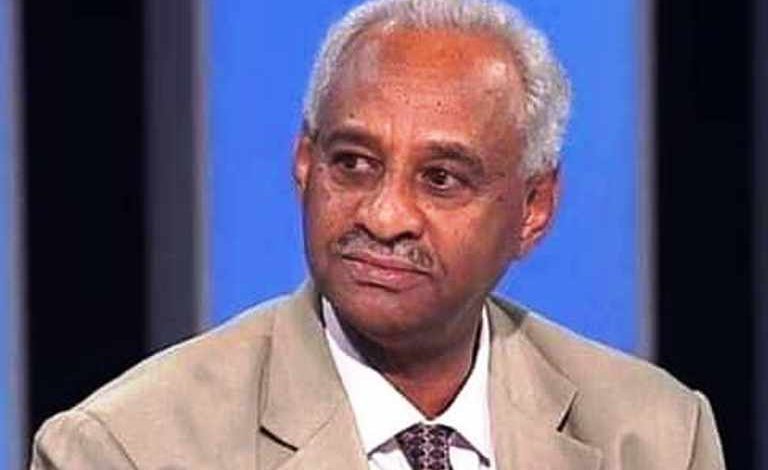Opinion
A Call to unmask the differences in the Sudan

Faisal Mohammed Saleh
This column has discussed more than once the extent of discord in Sudanese community and the sharp division that prevails in the country after the April 15 war. Sudan has always experienced, in various stages of its history, situations of sharp political division between the Unionists and the Umma Party, the left and the right, the Islamic political trends and the trends of the State civility or secularism, the conflict of the north and the south, but the general criterion was that it was a political conflict, even if it was marred by moments of violence that were sometimes bloody in the past. What is new and dangerous now is that the dispute is no longer just political, but has taken on a large and expanding societal and geographical nature.
The prevailing classification in social media now is based on ethnic and regional mobilization and incitement. The argument in support of “Rapid Support Forces (RSF)” argues about the demolition of the 56 state (the date of Sudan’s independence in 1956), which it describes as the state of the Jellaba (a term used to denote the people of the center and the north, focusing on specific northern groups).
On the other hand, the pro-army trend in social media sometimes adopts hate speech directed at the people haling from western Sudan in general, and sometimes limits the attack to the Arab tribes in Darfur, specifically the Rizeigat tribe. This speech reaches its highest obsession when it adopts the call to separate Darfur from Sudan so that the “State of the River and Sea” can be established, and this specifically includes northern, central and eastern Sudan.
Thus, concepts and positions are mixed up, and a state of political confusion pops up. There are those who belong to the Islamic movement in the Rapid Support Command, while the main movement of political Islam adopts an alliance with the army leadership, and cracks have occurred in the civil democratic movement between those who reject the war and those calling for it to stop, and those who believe that the priority is to side with the army to eliminate “RSF”, then disputed cases with the army could be later one reopened. Many people congregate to their tribes, forget their political affiliations, and enter into contradictions with their history and past political stands.
The political arena in Sudan urgently needs to return to adopting the approach of having a fresh examination of disagreements. This means returning to the objective analysis of the origin of the dispute, extracting the basic points through which groups and positions can be classified on this objective basis, and arranging the points according to their importance, some of which are essential, and some of which are secondary.
Some issues are crystal clear such as: can the army promptly resolve the battle militarily? The answer is no, and there is dozens of evidence for that. Therefore, it can be objectively considered that the call to stop the war is not necessarily directed towards the armed forces or supportive of “RSF,” whether people agree or disagree with it. The second point is: Are there groups or political forces, other than soldiers and members of the political and media staff of the “RSF” group, that believe that the “RSF” is fighting for spreading democracy and establishing civil state? The truth is that I have never come across an article or statement from any political group belonging to the movement demanding an end to the war which said that. They focus on the fact that this war is fatal to the nation and the people and that no one will win in it, but rather everyone will lose, and many of them hold a clear vision about the necessity of the military’s exiting from the arena of politics, including “RSF,” and the dissolution of all armed groups and militias so that there is a unified national army and they believe that the war will not achieve this.
On the other hand, are all those who call for the need to continue the war belong to the political Islam movement, or what they popularly call “Kizan”? The answer is definitely no, as there are groups affiliated with the Democratic Civil Movement and the Resistance Committees that believe that the priority is to defeat “RSF” because it is the most dangerous to the state and the civil project, and they use as evidence of the serious violations committed by the RSF and the looting and plundering cases and instances. There are groups that are not political, but they were subjected to looting, theft, and extortion by RSF soldiers, so they decided to take up arms against them.
Unmasking the dispute can lead people to dialogue about questions such as: Is it possible for the war to end in victory for one party, and what is the price paid for that? Then the question is whether stopping the war is considered a harmful position for the army or does it stop the process of its attrition and liquidation that is taking place now? Should the war continue? Will it stop the violations and crimes, or will stopping the war be the one that will do that? Is it appropriate to return to the transitional period to establish the civil state, or is a military rule required? What is the path to each of the two options? What is the path to removing the military from the arena of politics and their return to the barracks? Can war do that, and perhaps there are more questions.
Questions like these may restore the required political dialogue and may make the alignments more logical and objective, and bring those entrenched behind tribes and regional groups out of the shadows and hiding places of social media for an open dialogue in which all masks fall.



